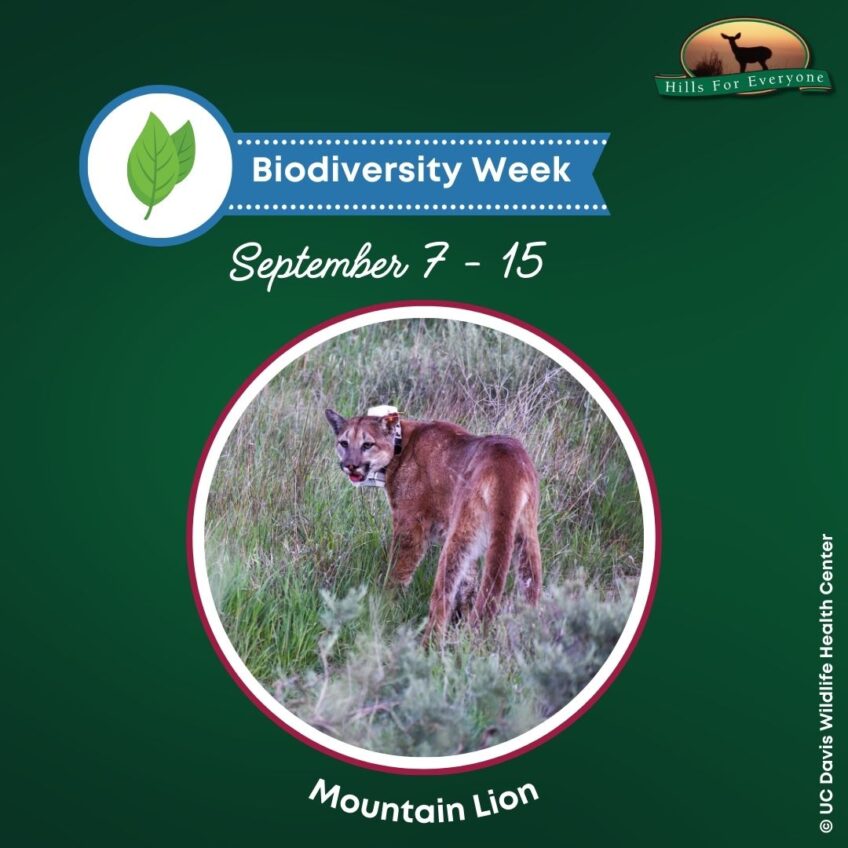The Southern California Cougar is genetically distinct from other populations in California because its habitat has been fragmented enough with road and development, the isolation allowed for the evolutionary distinction. The California Fish and Game Commission has listed it as a candidate for the state’s endangered species list, which offers it temporary protections while studies confirm its status and population sizes. Cougars, also called mountain lions, pumas, and panthers, are apex predators.
These predators are at the top of the food chain (the web of life). Without the apex predator, deer and other species reproduce so much that grasses, shrubs, and trees become stressed because of overgrazing. Apex predators keep mid-level animal populations in check. There have been three cougars in the Puente-Chino Hills Wildlife Corridor, which is a lot considering their home ranges are 50-120 square miles each. Supporting conservation work and preservation of wildlife corridors will help keep this majestic feline safe from extinction.
